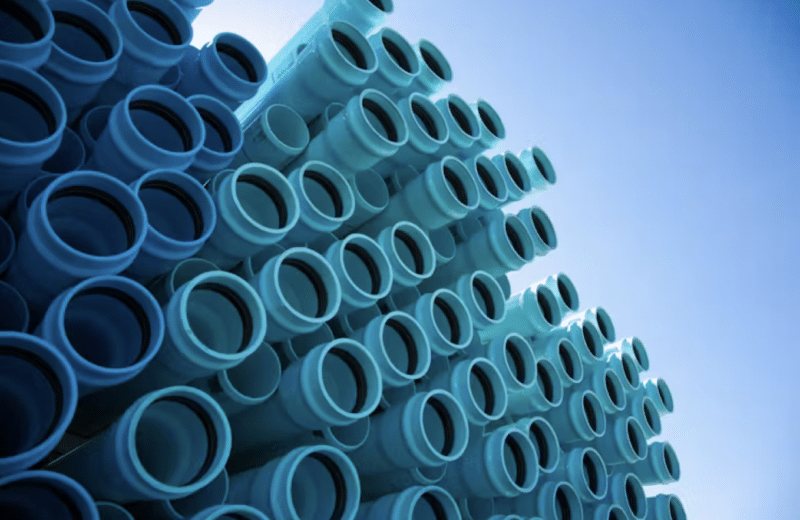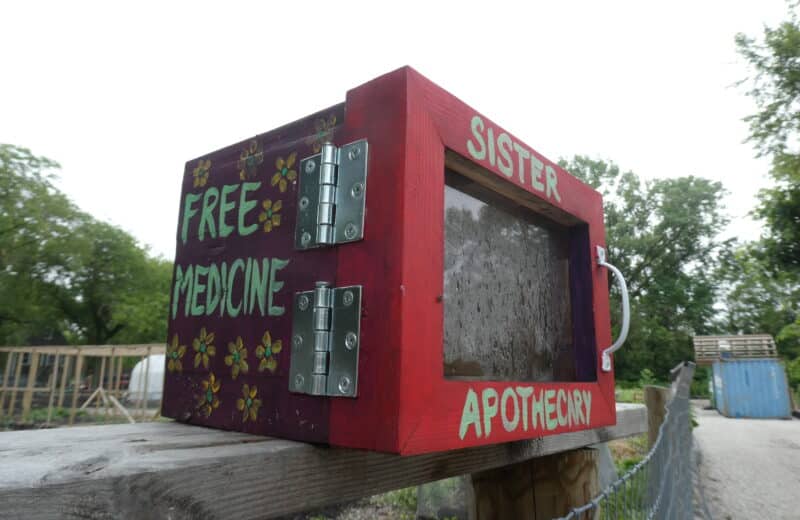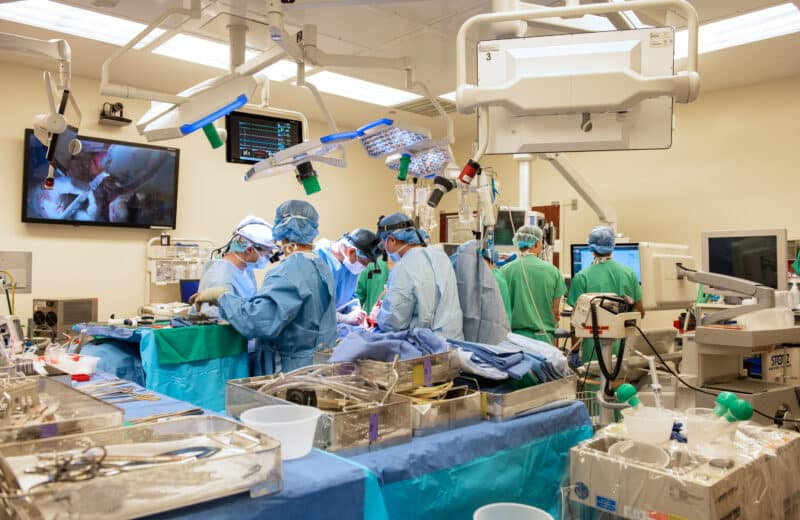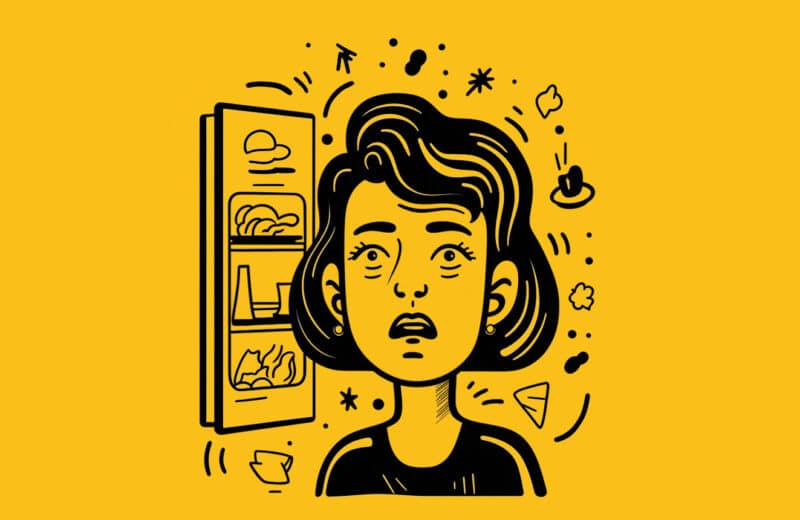Chicago Health is committed to publishing a diversity of opinions. The opinions expressed in this op-ed article are the author’s own.
As a practicing obstetrical hospitalist in suburban Cook County, I often see pregnant mothers in their most acute state, when they are having an obstetrical emergency. By the time I see these mothers, the cards are dealt, and we make the best of the situation we face. I can tell you that when a woman lives in a healthy environment and has access to healthcare, she is in a better position to have a good pregnancy outcome, even in the face of an emergency.
Everything she does to care for herself prior to the moment I see her really matters. Pregnant women pay great attention to what they eat, drink, and do during pregnancy. One of these major life activities is breathing — and they do that 20,000 times a day.
Which brings me to my point: Climate change worsens heat and air pollution, which can hurt mothers as well as their babies.
Heat exacerbates air pollution — a known biological toxin. Since the Clean Air Act of 1970, we have put laws in place to protect ourselves from breathing this toxin. But as climate change worsens, temperatures increase, and air pollution builds. To protect our health, we need to pass comprehensive clean energy legislation that supports a rapid and just transition away from the coal, oil, and natural gas that feed the climate crisis.
The hazards of air pollution
Failing to take action on climate change because of a pandemic or politics allows the insidious decline of our environment to continue. Climate change affects everyone and everything, but it chooses some favorites, including pregnant people and their babies.
A landmark systematic review of more than 32 million U.S. births from 2007 to 2019 published in June 2020 in The Journal of the American Medical Association highlights the problem. The study shows the association of air pollution (ozone and particulate matter) and heat exposure with three devastating obstetrical outcomes: preterm delivery, low birth weight, and stillbirth. People of color — especially Black mothers — and women with asthma face the greatest risk.
That’s especially bad news for Illinois because Cook County received an F for ozone pollution in the 2020 State of the Air report from the American Lung Association. In the 2020 March of Dimes report, Illinois received a D+ for its preterm birth rate. Cook County’s preterm birth rate also worsened from the previous year. The rate among Black women was unacceptably higher than all other groups. While there are many factors that contribute to each of these adverse obstetrical outcomes, environmental inequity and degradation is clearly a risk to pregnant women.
More importantly, whenever any of these negative outcomes occur, they happen at great personal cost to a mother, a baby, and a family. We Illinoisans bear this enormous societal and economic cost for not only years but also generations.
The health consequences for any child born prematurely or at a low birth weight can extend into adulthood. The American College of Obstetricians and Gynecologists, the leading OB-GYN professional society, has recognized the impact of climate change on the rate of low birth weight infants: “Environmental toxics in the preconception and prenatal period can have a profound and lasting impact on obstetrical outcomes, and these can have negative consequences that last throughout a lifetime.”
The American Academy of Pediatrics states that the “failure to take prompt, substantive action would be an act of injustice to all children. A paradigm shift in production and consumption of energy is both a necessity and an opportunity for major innovation, job creation, and significant immediate associated health benefits.”
Our pediatric colleagues are absolutely right in citing the need to address energy. On July 31, 2020, the chair of the United Nations’ Intergovernmental Panel on Climate Change, Hoesung Lee, PhD, stated that “energy is at the heart of the solution to the climate challenge” and “energy accounts for over two-thirds of global greenhouse gas emissions.”
Action in Illinois
Illinois is a microcosm of the larger national and global picture, and the majority of our greenhouse gas emissions come from the energy used for electricity, power generation, and transportation. We need to dramatically cut emissions or suffer the consequences of continued warming that further endangers human health.
Although Illinois joined the United States Climate Alliance, we have yet to enact 100% zero-carbon or carbon-neutral electricity targets through statute or executive order, as 16 other alliance state members have successfully done.
Illinois has a role in addressing the problem of climate change, and local solutions have a direct impact on our health and communities. Illinois needs to pass comprehensive, clean energy legislation this year.
This cannot wait. We must continue to advocate for an accelerated transition to clean, renewable energy in a way that is environmentally just, economically equitable, and good for our health.
Pregnant mothers take 20,000 breaths a day. What we give them to breathe matters. Illinois, it is time to take action on climate change, for women’s sake.
Protecting Pregnant People from Air Pollution
Pregnant or thinking of having a baby? Consider the following to minimize your risk of obstetrical problems, such as preterm labor, due to air pollution, heat, and climate change.
- Visit your healthcare provider before you are pregnant. Be as healthy as possible before pregnancy. When you are pregnant, start prenatal care early and get regular care.
- Make adjustments to your outdoor activity when air quality is poor, which is an effect of climate change. Pay attention to the air quality index on your phone’s weather app. Do not exercise near high-traffic roadways, because the exhaust from traffic carries pollutants that are bad for your health and your pregnancy.
- Pay attention to the outdoor temperature and heat index. Heat waves are harmful to health, more so when they are coupled with high humidity. Both heat and humidity are more common because of global warning. Stay cool and hydrated.
- Pay attention to your indoor air quality especially if you are spending time inside because of poor air quality outside. Keep your home smoke-free and properly vent your gas stove to the outside. Stop using toxic cleaning products. Use low- or zero-VOC (volatile organic compound) paints.
- Call your legislators and demand a comprehensive transition to renewable, clean energy, which is the best solution to the fossil fuel pollution that’s at the root of the climate crisis. Ask your healthcare provider to advocate on your behalf.
Regina de Leon Gomez, MD, is an actively practicing, board certified obstetrician in the Chicago area. She has served as the medical director of her hospital’s obstetrics hospitalist program since 2011.












